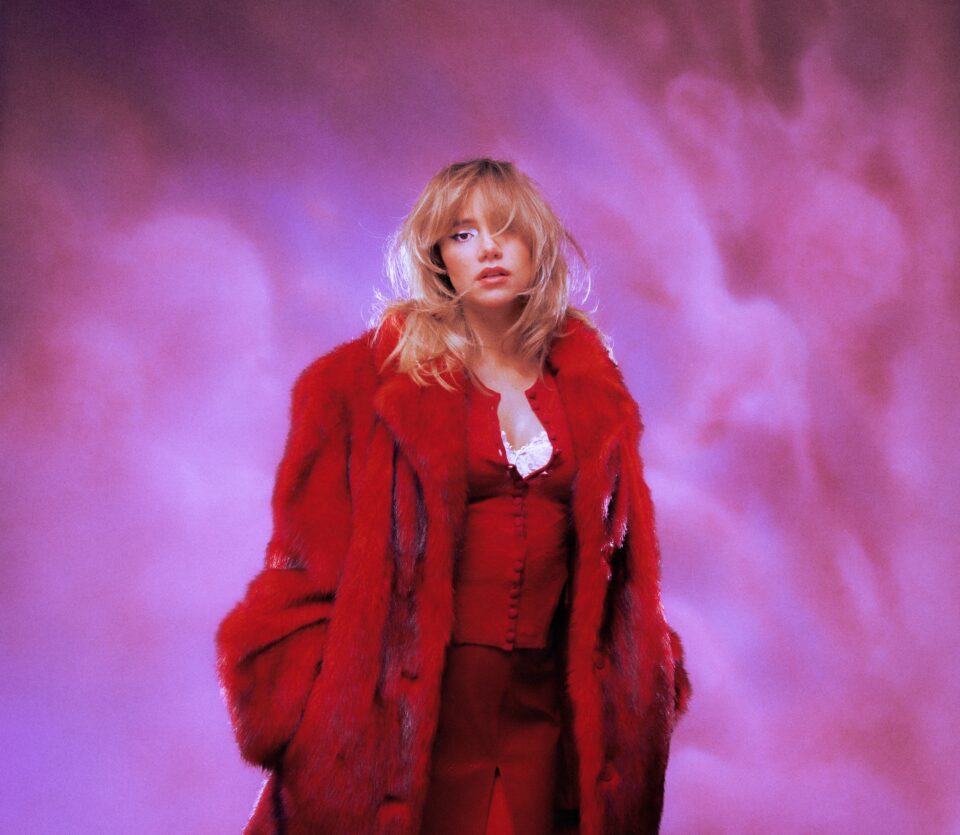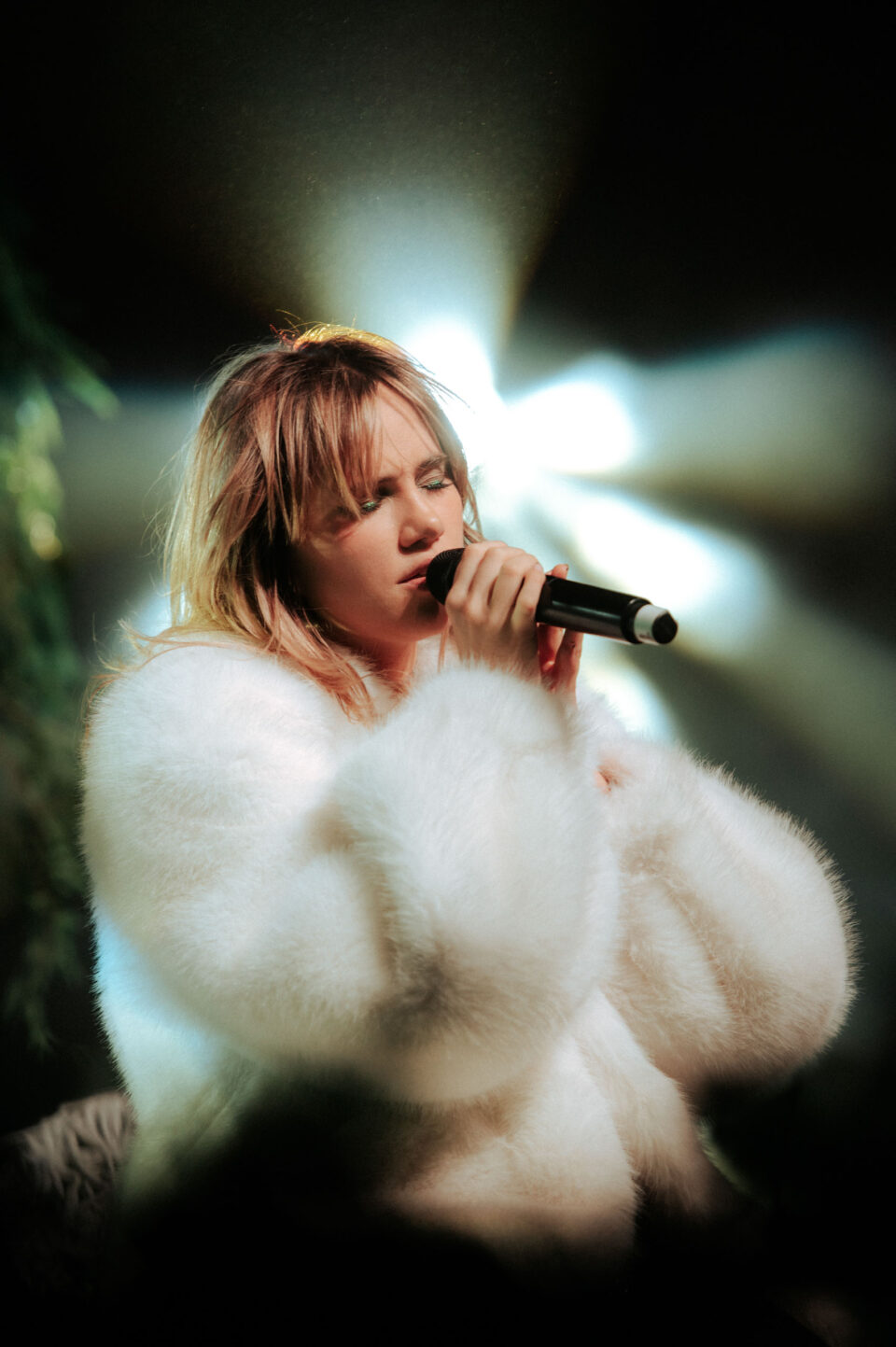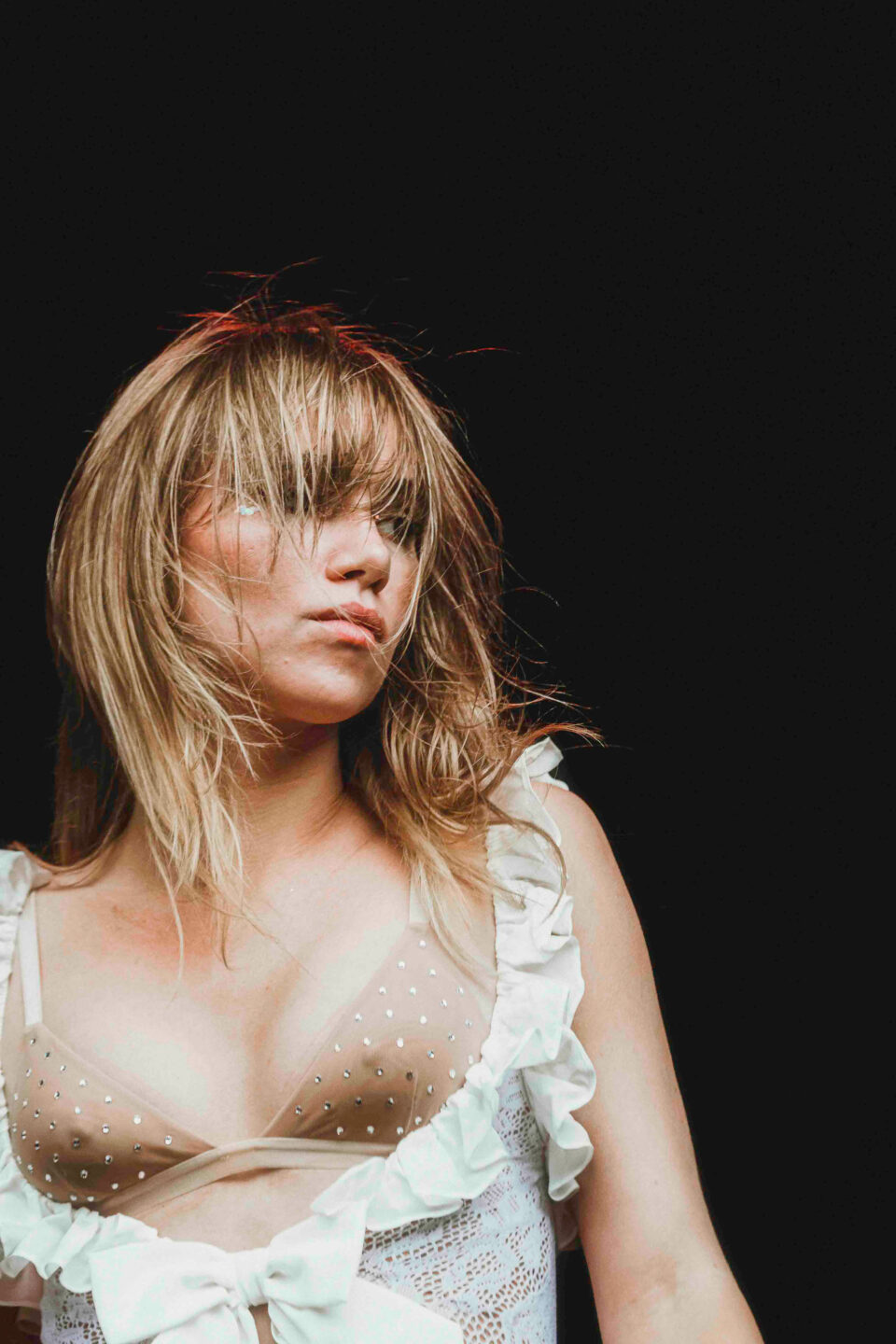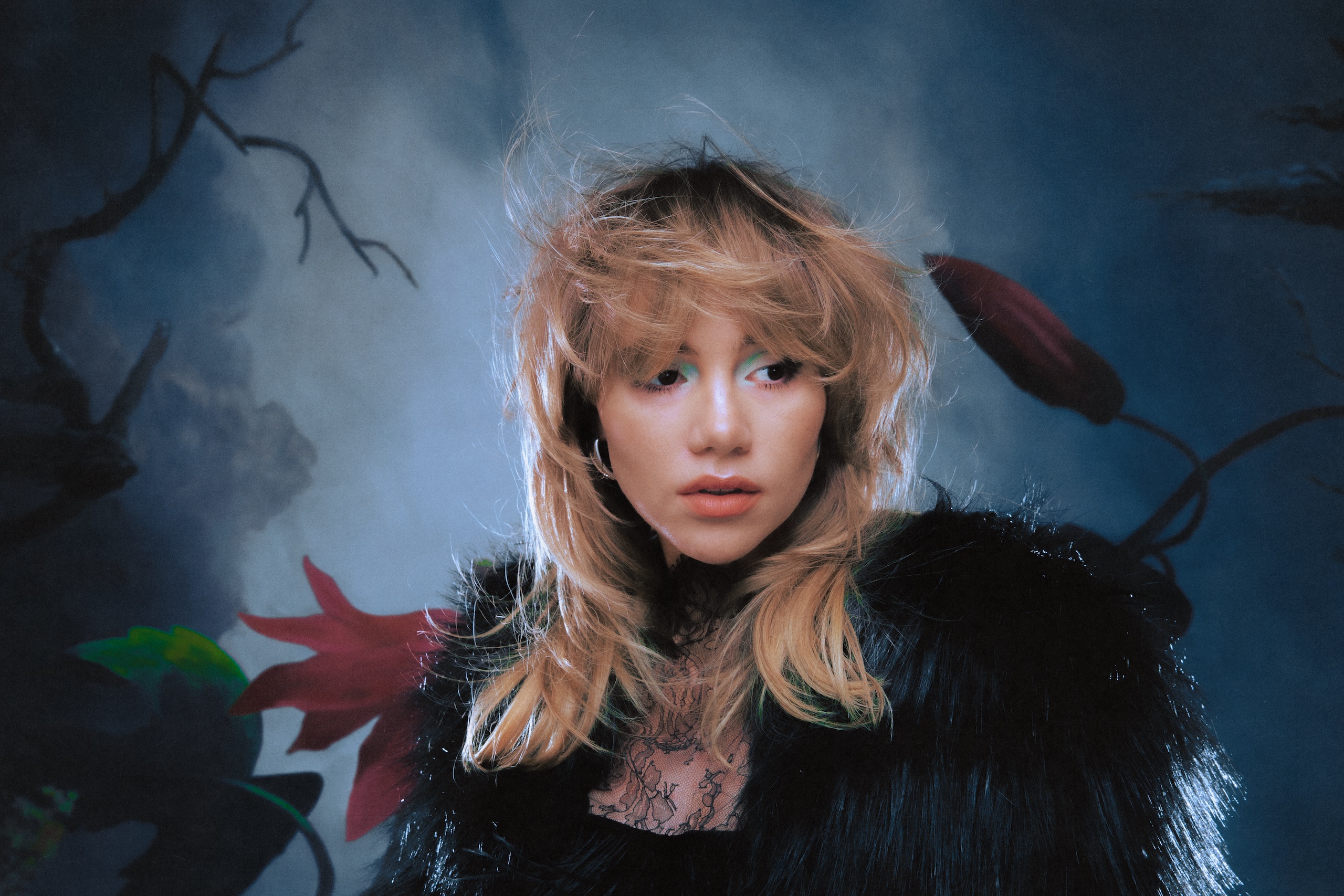“It can be a struggle to feel like you can do certain things if you have a label on you,” London-born Suki Waterhouse tells me, talking about the dozens of restrictive boxes she’s been placed in over her 15-year career as a public figure. The most common moniker for her has been an “It Girl,” a name given as early as 2012 in W Magazine that continues to persist long after she’s turned her focus away from modeling.
Over the last decade, the 32-year-old Waterhouse has morphed multiple times, shifting toward the screen and then to the studio, releasing her first album I Can’t Let Go in 2022. Popping up in Daisy Jones & the Six after several other supporting roles in film, she’s known to some only as an actress, though she’s hoping to change that. She’s now spending most of her time in Los Angeles, calling the city a strange, small bubble. In her eyes, she’s still a visitor, missing the rain of England while joking about the LA sunshine.
Chatting with Waterhouse, I’m struck by her excitement. She can’t stop talking about the profession of being a musician. She calls it the thing she truly loves. “It’s the best feeling to be able to share something,” says Waterhouse. “I just think it’s like the coolest job ever.” She repeatedly tells me she wants her music to be the soundtrack to a moment in someone’s life, an idea born out of this instinctual need to externalize thoughts that she would otherwise keep to herself. Waterhouse hopes to create communities of sharing, outpourings of emotional support and relatability, even if she loses possession of her lyrics once they’re out in the world. “It’s one of the most fascinating things, I think, about being a songwriter—that you make something and then it’s just not yours anymore.”
Her songs come from something small: interactions she overhears, sentences that stick in her mind. “For me, the earliest outset [of a song] will be a turn of phrase or a couple of lines in a conversation, or I’ll read something that will trigger a feeling. It comes pretty quickly, and sometimes I’ll be so 1,000 percent sure that it’s got to be a song.” It’s a feeling that inspired the 18 tracks that make up her aptly titled new project Memoir of a Sparklemuffin, named after a colorful Australian spider. For example, the inspiration for one of the darker songs on the record, “Everybody Breaks Up Anyway,” came from eavesdropping “I heard these girls talking about, ‘Oh, just wait, hang in there, because everyone breaks up anyway, so you’ll get your chance with that.’ It made me feel really sad. You start thinking, ‘Are we all just on a timer?’”

The making of Sparklemuffin moved from the studio to her home with Waterhouse’s pregnancy last year (she and her partner Robert Pattinson celebrated the birth of their first child back in March). For her, the studio is a scheduled ritual, a reason to physically get out of the house, to get away from the distractions of life. “It stuck me in one place,” she says. Waterhouse doesn’t record quickly; she takes her time with each song, tinkering until she’s happy with the outcome, or until the due date pops up. She tells me that it’s rare for her to finish a song within two or three days, instead assessing and reassessing, spending time sitting with each song. “It’s about opening everything back up for literally 12 hours a day. It’s like finishing anything—[there’s] always tons more mountains to climb up that you didn’t even realize were there.”
The album concerns itself with the word “could,” spending nearly an hour attempting to capture possibilities lost and gained. The word shows up in the majority of these songs—consistent, if not persistent, as Waterhouse reflects on what might have been, what currently is, and how the two are inextricably linked. “When I think back to my first record, it was called, ‘I Can’t Let Go’ and I was feeling very shrouded,” says Waterhouse. “This record is an emergence into a place where suddenly there’s more openness to possibility.”
“There’s always tons more mountains to climb up that you didn’t even realize were there.”

Suki Waterhouse at Coachella 2024 / photo by Alden Bonecutter/Coachella
Waterhouse wants to tell stories about the real and the fictional, to expand into existing potential. This idea of possibility joins a constant reframing of dreams, with exaggerated versions of herself and others becoming characters in Waterhouse’s narrative. It’s both idealistic and commendable, this continued prospect of hope. She talks me through the record’s cover art, going through magical grottos, amnesia, and weeping willows. Again, it comes back to spiders, hundreds of them cocooning her with a silk web. It’s another journey for Waterhouse, or at least a character that represents her. “This reflection takes me down the path of clarity to see what serves me with good intention,” she says. “To consume love instead of poison.” It’s a sentence that might be the perfect encapsulation of Memoir of a Sparklemuffin.
Take “Model, Actress, Whatever,” the song that Waterhouse says she’s most excited about, even with some apprehension. It’s an attempt to welcome headlines—to make the labels she’ll inevitably receive funny and enjoyable to her as she strives to laugh off everything that’s being said about her. “It’s one of those [songs] that I had this sense of really wanting to write, and then I almost put it to the side and was like, ‘Maybe I don’t want to put this out, because every headline is going to be about this.’ I’m laughing to myself because I’ve been trying to move away from that kind of thing.” It’s a happy contradiction, a willingness to accept what will be written about her, while showing that she doesn’t care. Her enthusiasm and amusement seem genuine, as I note that an increased tremor in her voice crops up when talking about this song in particular.
The album loosens up on “My Fun,” a single released back in April before the start of the summer. She made it with Jules Apollinaire and Nat Findlay, who she’s worked with for a decade. She calls the three of them the Three Musketeers, operating in a “Sgt. Pepper’s frame of mind.” “We went to Devon and it was raining for five days,” says Waterhouse. “We had no car and couldn’t even walk to a restaurant or a corner shop. It was literally like a co-op, just eating turkey slices for five days.” She talks about it like going to camp as a kid. “It was day five and we were really going a bit loopy. We were up in this strange, very isolated spot in the middle of the countryside, and we found a bag of recorders, which is an instrument that you play when you’re five years old.”
The recorders feature prominently in “My Fun” to great effect. “There’s a Beatles feeling to that song,” she continues. “It’s so joyful, it’s so upbeat. There’s something about being in the rain in England that makes you dream of being at a pool party in Palm Springs. I really like going into environments like that—especially the rain, actually—where it locks you in and gets your imagination going.”
But Memoir of a Sparklemuffin oscillates between apexes and valleys. It’s jagged in its emotional swings, alternating between love and heartbreak, dreams realized and dreams lost, the fullness and emptiness of relationships. It embraces a level of unevenness. “There’s a lot of sharp turns in this record, just like there’s so many roller coasters of emotions that you can go through,” she says. “Life has sharp turns. Our emotions have sharp turns. Maybe level-headedness isn’t always my forte.”

Suki Waterhouse
“My first record was called ‘I Can’t Let Go,’ and I was feeling very shrouded. This record is an emergence into a place where suddenly there’s more openness to possibility.”
These cliffs are grouped together, though, even if their order isn’t always particularly linear. The sadness melts into the joy and vice-versa. “‘Everybody Breaks Up,’ ‘Think Twice’, and ‘Helpless’ portray not being able to give up the ghost,” she says. “‘Everybody Breaks Up’ grapples with the realities of relationships and the tension between hope and acceptance and change. ‘Think Twice,’ I swore myself off love only to get drawn back in when a temptation arises. ‘Helpless’ delves into a theme of dependency and acknowledging a partner’s struggles.”
Waterhouse pushes forward, describing each aspect of the journey of the album. “[On] ‘Model, Actress, Whatever,’ ‘Faded,’ and ‘Could’ve Been a Star,’ I feel like the character of the sparklemuffin, and those songs go into the story of a woman in pursuit of glory and fame and getting destroyed by people she loves,” she continues. “‘Nonchalant,’ ‘Lullaby,’ and ‘Big Love,’ that’s where I’ve adopted a façade of attachment to shield myself. I’ve got a yearning for genuine love. ‘Lullaby’ and ‘Big Love’ have this gradual opening up to intimacy and comfort. That’s akin to a delicate spider emerging from its cocoon—curious, yet apprehensive at the danger that might meet me along the way.”
For Waterhouse, it all comes back to the spider, this sparklemuffin that’s become the symbol of this record. Regardless of what you think of her music, she’s finally doing what she loves. And with that, at least some of her dreams are finally coming true. FL







